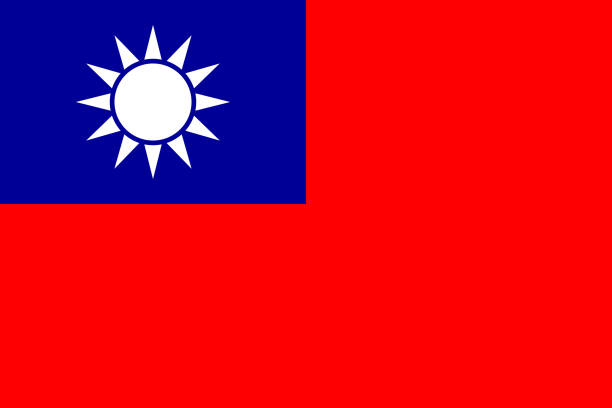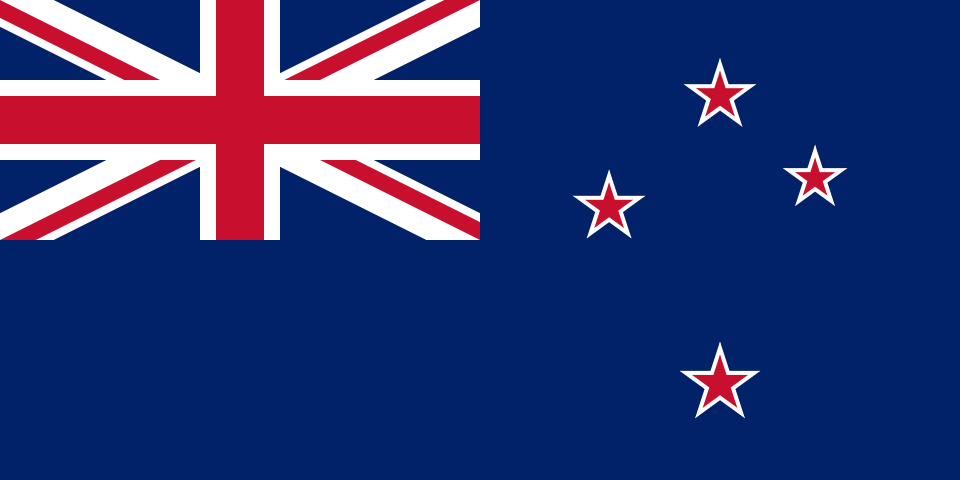Overview
The Department of Labor and Employment (DOLE) is the executive agency of the Philippine government charged with promoting gainful employment opportunities, regulating employer-employee relations, and protecting workers’ welfare . In simpler terms, DOLE is the national labor authority – it crafts labor policies, implements labor laws, and enforces standards in workplaces across the country. DOLE’s scope is broad: it covers everything from setting minimum labor standards (like work hours, overtime, holidays) and occupational safety, to facilitating employment services and skills training, to mediating labor disputes through its attached agencies. DOLE has a central office in Manila and a network of regional offices (each region, e.g. DOLE-NCR for Metro Manila, DOLE Region VII for Cebu, etc.), plus provincial field offices that bring its services closer to localities . For employers and HR professionals, DOLE is a key interlocutor in matters such as compliance inspections, labor complaints, alien employment permits, and rule-making that affects HR policies (like leave benefits or contract terms). The DOLE is often seen as balancing the dynamic between the right of management to run a profitable business and the rights of labor to fair and humane conditions .
Legal or Regulatory Basis
DOLE’s existence and authority derive from both constitutional and statutory mandates. The 1987 Philippine Constitution explicitly provides that the State shall afford full protection to labor and promote equal employment opportunities (Article XIII, Section 3), essentially laying the groundwork for DOLE’s mission . Operationally, DOLE’s powers are defined by the Labor Code of the Philippines (Presidential Decree No. 442 of 1974, as amended), which is the fundamental law governing employment practices . The Labor Code assigns to the (then) Ministry, now Department, of Labor the responsibility to enforce its provisions – from wages, working conditions, to labor relations. Over the years, various Republic Acts and Executive Orders have refined DOLE’s structure and functions. For example, Executive Order No. 126 (1987) reorganized DOLE post-martial law; Republic Act No. 6727 (Wage Rationalization Act of 1989) created the National Wages and Productivity Commission and Regional Tripartite Wages Boards under DOLE’s wing to handle minimum wage setting; Republic Act No. 10395 (2013) institutionalized some changes and strengthened the labor arbitration framework.
DOLE’s organizational framework includes several bureaus and attached agencies established by law, each with specific mandates:
• The Bureau of Working Conditions (BWC) handles setting and enforcement of general labor standards (hours, rest days, etc.) and occupational health and safety.
• The Bureau of Labor Relations (BLR) oversees union registration and collective bargaining issues.
• The Bureau of Local Employment (BLE) manages local employment facilitation, including programs like the Public Employment Service Office (PESO) network, and also oversees the Alien Employment Permit process for foreign workers.
• The Philippine Overseas Employment Administration (POEA) used to be under DOLE for overseas employment, but starting 2022 it has been reorganized as the Department of Migrant Workers (a separate department), signifying that DOLE now focuses mainly on domestic labor.
• The National Labor Relations Commission (NLRC) is an attached quasi-judicial agency that adjudicates labor cases (like illegal dismissal, unfair labor practice).
• The National Conciliation and Mediation Board (NCMB), Occupational Safety and Health Center (OSHC), Employees’ Compensation Commission (ECC), Institute for Labor Studies (ILS), and others are all part of the DOLE family established by various laws.
In sum, DOLE’s legal basis is a combination of constitutional principles and a host of laws that entrust it with implementing rules to realize those principles. DOLE secretaries (the head of the department) are empowered to issue Department Orders, Labor Advisories, and other regulations that have legal effect on employers and workers, as long as they align with the Labor Code or other labor laws.
Contribution or Eligibility Criteria
Unlike SSS or PhilHealth, DOLE is not a fund to which one contributes; rather, it’s a regulator and service provider. However, one could speak of “eligibility” in terms of who falls under DOLE’s jurisdiction or programs. DOLE’s jurisdiction covers all private sector employers and employees in the Philippines. If you are a private business, regardless of size, you must adhere to labor standards that DOLE enforces (small enterprises might have some exemptions or different arrangements in certain laws, but generally they are still under DOLE’s purview). Government employees, on the other hand, are not under DOLE but under the Civil Service Commission rules. Thus, DOLE typically does not intervene in civil service matters (except that DOLE still handles government workers’ occupational safety via OSHC and some internship programs).
For foreign nationals and their employers: DOLE is the agency that issues Alien Employment Permits (AEP), which are generally required for foreigners seeking local employment (except those exempt by law). To be “eligible” for an AEP, the employer must show that the foreign national will perform a job that local workers cannot adequately do, among other requirements, and DOLE will evaluate this (often through labor market tests). In 2021, DOLE’s Department Order No. 221-21 governed AEPs, and in 2025 new guidelines (Department Order No. 248-25) were issued to update this process .
DOLE also administers training and emergency employment programs. For instance, DOLE’s “TUPAD” (Tulong Panghanapbuhay sa Ating Disadvantaged/Displaced Workers) provides short-term employment to informal workers; DOLE’s apprenticeship and learnership programs allow firms to train young workers at below-minimum wage under certain conditions (they must register such programs with DOLE). Eligibility for these programs is usually defined by guidelines (e.g., apprentices must be at least 15 years old and the training program not exceed 6 months, etc.).
Another area is labor relations: to form a union or file a collective bargaining agreement with DOLE (through BLR or DOLE regional offices), certain eligibility criteria apply (a union must have majority support of workers in a bargaining unit, etc.). While these are detailed in the Labor Code, DOLE oversees the registration and thus ensures eligibility criteria are met (such as a minimum 20% of workers as union members upon application for registration).
In terms of inspections, any establishment can be subject to labor inspection by DOLE. However, DOLE often prioritizes larger or more risk-prone industries due to limited manpower. Micro enterprises (less than 10 employees) are typically not routinely inspected but are still expected to comply with fundamental labor laws.
For employees seeking redress, DOLE has a single-entry approach (SEnA) program where any worker (or employer) can file a request for assistance for any labor dispute; DOLE will call both parties for conciliation. All employees in the private sector are eligible to use this mechanism at DOLE field offices.
Purpose and Use in HR or Business Compliance Context
DOLE’s purpose is essentially to operationalize the country’s labor laws and social justice provisions in the workplace. For HR professionals, DOLE is both a guide and a watchdog.
Regulator and Enforcer: DOLE sets the rules that HR must follow. For example, through its department orders and advisories, DOLE clarifies how certain laws are applied. If the law says employees must be paid a premium for night shift work, DOLE issues guidelines on the night shift differential rate (like 10% extra for work between 10pm–6am as per the Labor Code). If new laws are passed, DOLE often crafts the Implementing Rules and Regulations (IRR). A case in point: when the Expanded Maternity Leave Act (RA 11210) became law in 2019, DOLE issued the IRR that employers and SSS use to implement the 105-day maternity leave benefit. HR departments rely on these IRRs and DOLE circulars to adjust their company policies.
Inspections and Compliance: DOLE conducts labor inspections to check compliance with general labor standards and occupational safety. An HR department should expect that at some point, a DOLE inspector may visit (announced or unannounced) to examine payrolls, employment contracts, time records, and compliance with mandates like minimum wage, holiday pay, 13th month pay, leave benefits, and safety regulations. Typically, DOLE provides a checklist of documents (e.g., proof of SSS/PhilHealth/Pag-IBIG remittances, payslips, company policies) during an inspection. It’s HR’s responsibility to maintain these records and present them. If DOLE finds violations (say, underpayment of overtime, or absence of a required safety committee), they will issue a Notice of Results and ask the employer to rectify the issues by a deadline. Engaging cooperatively with DOLE can often lead to corrective action without penalties, whereas negligence or willful non-compliance can lead to fines or even legal cases.
Labor Dispute Resolution: DOLE plays a mediating role through its labor relations arms. For HR, this means that if there’s a conflict with an employee or a group of employees (e.g., claims of illegal dismissal, unfair labor practice, or simply requests for unpaid benefits), often the first stop is the DOLE field office for SEnA (mediation). HR would typically represent the employer in these discussions to try to amicably settle the issue. If settlement fails, the case might proceed to NLRC (for adjudication). Even during strikes or collective bargaining deadlocks, DOLE (via NCMB or even the Office of the Secretary) can assume jurisdiction over disputes in critical industries and mandate mediation or arbitration. HR needs to understand these processes to navigate disputes effectively.
Policy and Program Partner: DOLE isn’t only about catching violations; it also provides services that HR can tap into. For instance, DOLE runs job fairs and career coaching through its BLE and partnerships with LGUs and schools, which can aid recruitment efforts. DOLE also certifies compliance through programs like the DOLE Secretary’s Award or Tripartite Certificates of Compliance – some companies volunteer for assessment to be recognized as compliant, which can enhance their reputation. If an employer is planning a retrenchment or closure, DOLE requires notification 30 days in advance, and DOLE often offers assistance in terms of helping displaced workers find new jobs or avail of government support. HR must coordinate these notifications (using the DOLE clearance process to avoid potential legal issues with terminations).
Foreign Employment Permits: If a company is hiring a foreign national, HR will deal with DOLE to secure an Alien Employment Permit (AEP). The process involves posting the job opportunity to ensure no Filipino is available, then submitting an application with the employment contract and credentials of the foreign hire. DOLE will approve and issue an AEP (or deny it) and this document is needed for the foreigner’s work visa. Recent DOLE guidelines (DO 221-21 and the new DO 248-25) have adjusted some requirements – for example, DO 248 now gives employers 15 days from contract signing to apply for the AEP and requires publication of the job vacancy in specified forums to conduct a labor market test . HR needs to follow these steps meticulously to avoid delays or rejections in bringing a foreign expert on board. Additionally, DOLE issues Certificates of Exemption or Exclusion for AEP in cases where the foreigner is exempt (e.g., those coming for short-term assignments under 6 months, who instead use a Special Work Permit from Immigration; or those elected as company directors not involved in day-to-day management). HR should be aware when such exemptions apply and secure the necessary DOLE certificate stating no AEP is needed .
Workplace Safety and Health: DOLE, through BWC and OSHC, oversees occupational safety. They have issued the Occupational Safety and Health Standards (OSHS) which all companies must follow (covering everything from having fire extinguishers and emergency exits, to setting up a Safety Committee if a workplace has 50 or more workers, to providing Personal Protective Equipment in appropriate jobs). In 2018, the Philippines passed RA 11058 (Occupational Safety and Health Law) which gave more teeth to DOLE in enforcing safety, including the ability to fine companies for infractions. HR, often along with safety officers, must ensure compliance – e.g., ensuring all employees undergo the mandated safety orientation, reporting accidents to DOLE within 24 hours, and submitting the annual Work Accident/Illness Exposure Data Report.
Statutory Reports: Aside from ad-hoc inspections, DOLE requires some regular reporting. For example, establishments with 10 or more employees must submit an annual report on the implementation of their HIV/AIDS workplace policy and program (as per RA 8504 and DOLE guidelines). Establishments are also encouraged to submit an annual establishment report on compliance (though this is not strictly enforced, many companies voluntarily report their compliance status). If mass layoffs or closures happen, as mentioned, the reporting is mandatory. There’s also a mandatory Report on Compliance with 13th Month Pay due every January 15 to DOLE, where the employer declares it has given the 13th month pay to all eligible employees by Dec 24 of the previous year.
Given all these, HR departments often maintain a “DOLE logbook” of compliance – ensuring that any DOLE communication is promptly addressed, that all postings required by DOLE (like the Labor Law Compliance Posters which show minimum wage, working hours, general labor standards summary) are displayed on company premises, and that a good relationship is kept with DOLE officials. Many larger companies have a dedicated Labor Relations or Compliance Officer whose job is liaising with DOLE.
Recent Developments or Legal Changes
The labor landscape is always evolving, and DOLE is at the forefront of implementing changes. A few recent developments in the mid-2020s include:
• Employment of Foreign Nationals: In January 2025, DOLE issued Department Order No. 248-2025, the “New Rules and Regulations on the Employment of Foreign Nationals” . This updated prior rules (DO 221-21 from 2021) on issuing Alien Employment Permits. Key changes included giving employers a slightly longer period to file for an AEP after hiring a foreign national (15 calendar days from contract signing, up from 10 working days) , and refining the labor market test requirements (now explicitly requiring the employer to publish the job vacancy and the name of the foreign hire in a newspaper, on the DOLE’s PhilJobNet, and at the local Public Employment Service Office ). It also made it mandatory (previously just encouraged) for foreign nationals exempt from AEP to secure a Certificate of Exemption from DOLE , ensuring DOLE has a record of all foreign nationals working even if they are exempt from the permit. These changes mean HR dealing with expat hiring should familiarize themselves with the new procedures and comply to avoid penalties or work visa delays.
• Flexible Work Arrangements: The COVID-19 pandemic forced many companies into telecommuting or alternative work arrangements. DOLE had issued Department Order No. 202, series of 2019 (the Telecommuting Act IRR) earlier, but uptake was modest until 2020 when it became widespread by necessity. Post-pandemic, DOLE has been supportive of hybrid work setups. In 2022, DOLE released Labor Advisory No. 11-2022 which provided guidelines on shifting to remote work permanently under the Telecommuting Act. It clarified that any telecommuting agreement should be voluntary and not diminish labor standards. While not a dramatic legal change, it signaled DOLE’s encouragement of flexible work as a mechanism for business continuity and work-life balance.
• Mental Health and Anti-Discrimination: DOLE has also turned attention to mental health in the workplace pursuant to the Mental Health Act (RA 11036). In 2023, DOLE issued a labor advisory urging employers to implement mental health workplace policies and programs (e.g., Labor Advisory 19-2023 required effective access to mental health services for employees). Additionally, DOLE reminded employers to comply with the Safe Spaces Act (RA 11313 of 2019) by forming Internal Committees on Decorum and Investigation for sexual harassment cases, showing an integrated approach to employee well-being and safety beyond just physical health .
• Wage and Monetary Benefits Adjustments: Aside from minimum wage increases (which are handled by regional boards as discussed for NCR and similarly in other regions), other monetary benefits have seen change through law and DOLE’s implementation. The Expanded Maternity Leave (105 days paid) has been fully integrated into workplace practice since 2019, with DOLE ensuring employers know that this benefit is paid via SSS (for private sector) but with employer obligations (e.g., the employer initially pays then gets reimbursed by SSS, and must not refuse to reinstate the woman after leave). DOLE also issued guidelines on the Solo Parents Leave expansion after RA 11861 (2022) amended the Solo Parents Welfare Act to give an additional paid leave for solo parents – DOLE and CSC crafted guidelines for that in 2023.
• Labor Law Compliance System: DOLE has strengthened its Labor Inspectorate by hiring more Labor Laws Compliance Officers (LLCOs) and adopting a new inspection strategy that includes more unannounced visits and the use of digital tools for reporting. In 2021–2022, DOLE implemented the Online Checklist for inspectors and encouraged establishments to do self-assessments. DOLE has also been publishing more information about companies found violating labor laws, as part of a transparency push.
• Endo (End of Contract) and Security of Tenure: There has been a long-standing issue in the Philippines about “endo” or the practice of repeated short-term contracts to avoid making workers regular employees. A Security of Tenure Bill that would have restricted labor-only contracting further was vetoed in 2019 by the previous president, but a new version has been refiled in Congress. While not yet a law, DOLE in the meantime has tightened enforcement of its existing Department Order No. 174-2017 which regulates contracting and subcontracting. Many manpower agencies underwent stricter accreditation, and DOLE has blacklisted some agencies that were found to be mere “labor-only contractors.” HR professionals should thus be cautious in engaging third-party contractors – ensuring they comply with DOLE DO 174 and that contractors treat workers properly – because DOLE can hold the principal employer accountable if the contractor is non-compliant.
• Emergency Employment and Recovery Programs: After natural disasters or economic shocks, DOLE activates programs like the TUPAD (emergency work) or encourages use of the Flexible Work Arrangements (e.g., reducing workdays or hours) instead of outright layoffs. For instance, during the pandemic, DOLE issued Labor Advisories allowing employers to implement reduced workdays, rotational shifts, or temporary closures, as long as there was DOLE notification and employee consent, to preserve jobs. As of 2025, while the pandemic has receded, the experience has left DOLE more prepared to promote such flexible arrangements in future crises rather than mass separations.
In summary, DOLE continuously evolves through its orders and advisories in response to new laws and the socioeconomic environment. Employers should monitor DOLE issuances (often posted on DOLE’s official website or social media, and sent to industry associations) because they often contain transitional guidelines or new interpretations that require adjustment in HR practices.
Importance for Employers and Employees
DOLE’s importance is pivotal: it is the guardian of workers’ rights and at the same time a crucial partner for employers to ensure fair play and industrial peace. For employers, understanding and complying with DOLE regulations is not only about avoiding legal penalties – it also fosters a positive workplace environment that can improve productivity and reduce conflict. Companies that abide by labor laws tend to have better labor relations and are less likely to face strikes, lawsuits, or government sanctions. Moreover, an employer known for respecting labor standards can attract better talent (many employees, especially in the millennial and Gen Z workforce, value how a company treats its people, not just the salary). Non-compliance, on the other hand, can result in orders to pay back wages, monetary fines, or even temporary closure of business (in extreme cases of imminent danger or willful violations, DOLE can issue a stoppage order).
From an HR perspective, DOLE provides the framework that HR policies are built on. Annualizing 13th month pay, calculating leave conversions, setting maternity benefits, disciplining or terminating employees – all these common HR tasks must be done in line with DOLE’s rules (which derive from law). For example, if an employee is to be dismissed for just cause, the Labor Code (through DOLE’s enforcement) requires a specific due process (notice to explain, hearing, notice of decision). HR must follow this; otherwise DOLE (via NLRC) could deem it illegal dismissal. Thus, DOLE’s presence ensures HR practices remain fair and legal, which ultimately protects the company too (by minimizing wrongful termination cases).
For employees, DOLE is a protector and recourse. Many rank-and-file employees may not know all provisions of the Labor Code, but they do know that DOLE is the place to complain if they are being mistreated or not paid correctly. The awareness that “I can go to DOLE” serves as a deterrent against abusive practices. Employees have benefitted from DOLE’s work in raising standards – for instance, the consistent enforcement of minimum wage laws means even domestic helpers (kasambahay) now have a law-mandated minimum wage and formal rights (since the Kasambahay Law, RA 10361, implemented with DOLE’s help). In hazardous industries like construction, DOLE’s safety inspectors and time-to-time work stoppage orders on unsafe sites have literally saved lives.
Another area where employees interact with DOLE is through its training and livelihood programs. DOLE runs the Government Internship Program (GIP) hiring young graduates for short stints in government agencies, it coordinates the Special Program for Employment of Students (SPES) which subsidizes wages for poor but deserving students working during breaks – many youth get their start through such programs. It also has livelihood grant programs (like DOLE’s Integrated Livelihood Program) where workers’ groups or informal sector folks can receive equipment or seed money to start small enterprises. While HR of private companies may not directly use these, the communities around companies or even some employees’ families might benefit, contributing to community relations.
DOLE’s importance is also seen in times of crisis. During the pandemic, DOLE rolled out cash assistance (COVID-19 Adjustment Measures Program – CAMP) for displaced workers and a separate program for OFWs. Employers coordinated with DOLE to submit lists of affected employees to facilitate that cash aid. Similarly, after a disaster like a typhoon, DOLE might engage companies in affected areas for emergency employment projects. This demonstrates that DOLE is vital in the social safety net beyond the normal employer-employee transactions.
For foreign employers, an additional reason DOLE is important is to avoid inadvertently violating Philippine labor laws due to ignorance. Some practices acceptable elsewhere (e.g., employment-at-will with no required notice or cause) are not legal in the Philippines. DOLE’s regulations will educate and require the foreign entity to adjust to local norms. Being in DOLE’s good graces can also be beneficial – for instance, DOLE sometimes gives awards (like Outstanding Employer awards or Safety awards) which can bolster a company’s image.
From the employees’ vantage point, DOLE symbolizes their right to equitable treatment in the workplace. The existence of DOLE means employees can expect basics like a written contract, timely payment of wages (the Labor Code requires wages be paid at least every 15 days, and DOLE monitors complaints about delayed wages), and legally mandated benefits. Many employees may never need to personally visit a DOLE office if their employer is doing things right – and that, in a way, is the ideal scenario DOLE hopes for: that employers voluntarily comply and workers enjoy their rights without needing government intervention.
In conclusion, DOLE’s role for both employers and employees is foundational. It is the referee in the world of work, setting fair rules and intervening when those rules are broken. For a foreign employer or HR practitioner, engaging proactively with DOLE – by staying updated on its issuances, perhaps joining dialogues or forums it conducts (DOLE often consults with industry groups on policy changes), and ensuring one’s company is following the law – will go a long way in ensuring smooth and lawful operations in the Philippines. Employers who work with DOLE (rather than around it) tend to find that compliance is not as burdensome as it may seem, and it certainly is beneficial in fostering a stable, productive workforce.







